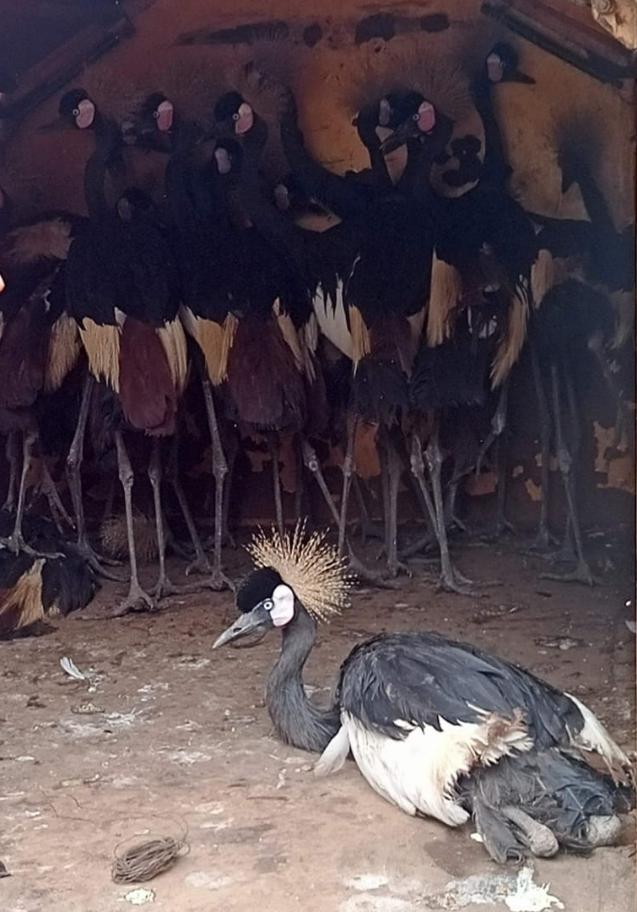Hermann Ghislain Chabi
Africa harbours one-fourth bird species of the world’s total including endangered species according to BirdLife International (2012). Among the endangered bird species, occurs the black crowned crane (Balearica pavonina), endemic to Africa and threatened with extinction due to habitat loss and degradation, local consumption, traditional medicine, illegal trading and egg removal (Williams et al. 2003, Gameda et al. 2016, Aticho et al. 2018). In Benin, the focal species is under declining trends with a small population in the best managed National Park of Pendjari (Williams et al. 2003, Neuenschwander et al 2011). Although protected under national legislation, the black crowned crane is openly sold in traditional medicine markets (Magnide 2018) and is listed among the wild species threatened by international trade.

Black crowned cranes seized in Cotonou by CITES authority-DGEFC of Benin in August 2022. © Hermann G. Chabi.
A recent national report of the forest service in Benin revealed the seizure of a dozen individuals for international trade. Despite the above-mentioned context in Benin, the black crowned crane suffers from a great lack of knowledge in all research fields that could provide better informed conservation decisions to reverse ongoing decline trends. This, along with the species being one of most predominant bird species trafficked in Benin to feed national and international trade, has placed a great urgency on studying its geographical distribution, ethonozoology, threats and commercial value.
Our project is a pioneer study on the black crowned crane in Benin and aims to identify its critical habitats threats to conservation, understand its importance in local consumption/traditional medicine and ritualistic traditions and decipher the trade chain, using local ecological knowledge from hunters and vendors in rural communities surrounding naturals ecosystems and traditional medicine markets respectively. We will conduct behaviour campaigns in the habitats where presence of the focal species will be confirmed during field investigations using the findings of the project.